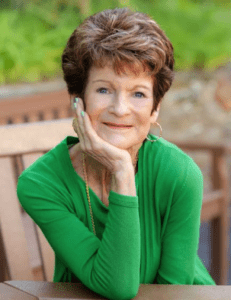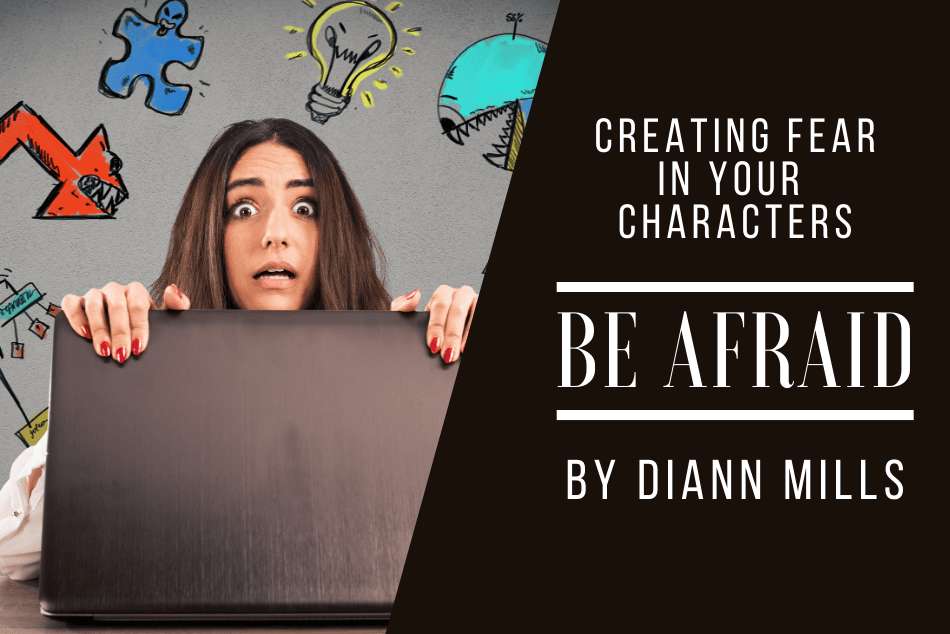All of us are afraid of something, and our characters show us their fears in responses that translate into action and internal reaction. Fear, real or imagined danger, terrifies the character, either physically or mentally. The impact can imprison and force the victim into shock, running, paralysis, finding a place to hide, or a mix. Some fears are healthy and worth heeding the warnings and potentially harmful consequences.
Fear comes in different flavors:
Fear comes in all shapes and forms: physical, mental, emotional, and spiritual. If a character cannot restrain an inappropriate emotion, the issue will stop the character from being his/her best. It enables the character from experiencing growth and change. A writer creates a setting in which the protagonist must overcome the fear before he/she can overcome the obstacle at the climax. For an antagonist, a fear may be the driving force in their behavior.
According to James Scott Bell, every character faces a type of death—physical, psychological, or professional. One is always prominent. What kind of death(s) will the character face?
Some fears are instinctive, like pain. Some are acquired through life experiences. The character also learns fears from those who care, don’t care, or wish to instill prejudices or viewpoints that are healthy or inappropriate. For a logical character, it seems prudent to avoid playtime with lions, harmful habits, a swallow of poison, a loaded firearm, undisciplined friends, a walk across a busy street, and the list goes on. All poor decisions equate to playing with fire. Pardon the pun. Fear isn’t necessarily a sign of cowardice. Instead, fear often compels a character to pursue survival skills, and the things one character fears may not be the same for another. It’s the face them down fears that inspire a courageous character.
Fear’s has side effects:
- Contribute to paranoia
- Create insomnia
- Damage health
- Destroy relationships
- Instill insecurities
- Focus on isolation
- Limit brain function
- Stop a character from reaching full potential
Phobias are abnormal or irrational fear. The fear is linked to something that results from a negative experience. To the character, those memories that morphed into a fear hold the same side effects as an actual threat or danger.
How a character responds to fear is critical to story and character arc:
Readers want to see how internal and external traits apply to the struggle and possibly lead to a transformation. Heroes, heroines, and antagonists weigh the level of the threat and the consequences according to their personality, life experiences, culture, setting, and education—I imagine you see a pattern.
Writers use intentional means to show a character has the potential to overcome a genuine fear. These are characters who experience the emotion authentic to them and move ahead to rectify the matter either for themselves or others, depending if the role in the story is one of a protagonist or an antagonist.
Writers must ask the hard questions:
- Does the character know where the fear originated?
- Is the fear valid?
- How can the character overcome it?
- Does the character want to resolve the fear?
- Does the character need help—professional, spiritual, or guidance from a friend or family member, or subject matter professional?
- How can the character restore self-confidence?
“Those fears are rooted in a powerful, primary emotion: experiencing shame. Thus, building heroism starts with creating fear, and creating fear starts with shame.” —Donald Maass
A writer uses every detail about human behavior to show a real character. Explore the possibilities of fear to add depth to your story.
 DiAnn Mills is a bestselling author who believes her readers should expect an adventure. She weaves memorable characters with unpredictable plots to create action-packed, suspense-filled novels. DiAnn believes every breath of life is someone’s story, so why not capture those moments and create a thrilling adventure? Her titles have appeared on the CBA and ECPA bestseller lists; won two Christy Awards; Golden Scroll awards; and been finalists for the RITA, Daphne Du Maurier, Inspirational Readers’ Choice, and
DiAnn Mills is a bestselling author who believes her readers should expect an adventure. She weaves memorable characters with unpredictable plots to create action-packed, suspense-filled novels. DiAnn believes every breath of life is someone’s story, so why not capture those moments and create a thrilling adventure? Her titles have appeared on the CBA and ECPA bestseller lists; won two Christy Awards; Golden Scroll awards; and been finalists for the RITA, Daphne Du Maurier, Inspirational Readers’ Choice, and Carol award contests. DiAnn is a founding board member of the American Christian Fiction Writers, a member of Advanced Writers and Speakers Association, Mystery Writers of America, and International Thriller Writers. She speaks to various groups and teaches writing workshops around the country. Her latest book FACING THE ENEMY is available for Pre-Order now!
Carol award contests. DiAnn is a founding board member of the American Christian Fiction Writers, a member of Advanced Writers and Speakers Association, Mystery Writers of America, and International Thriller Writers. She speaks to various groups and teaches writing workshops around the country. Her latest book FACING THE ENEMY is available for Pre-Order now!
DiAnn and her husband live in sunny Houston, Texas. DiAnn is very active online and would love to connect you on: Facebook, Twitter, Instagram, or diannmills.com





